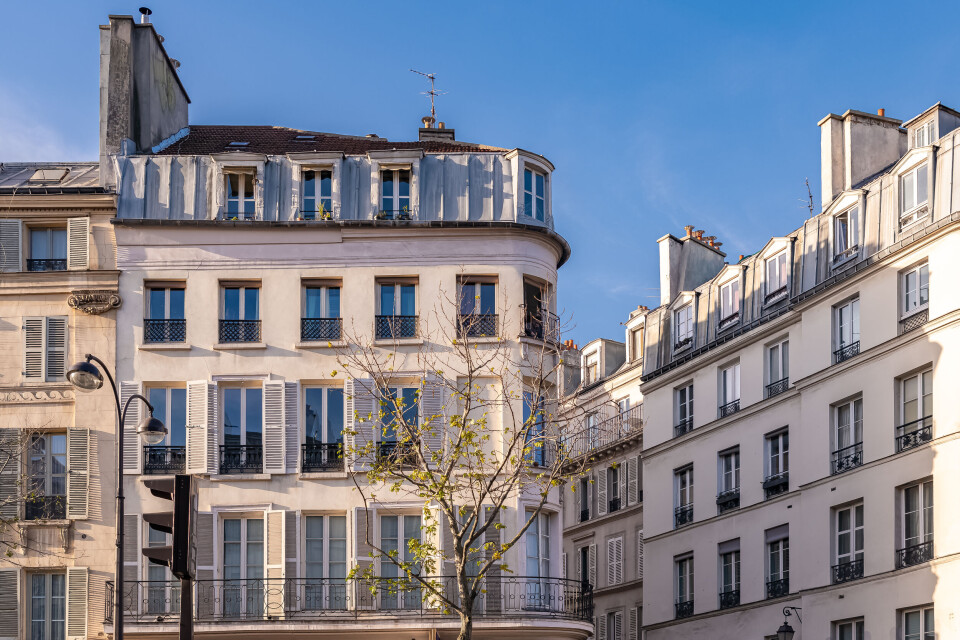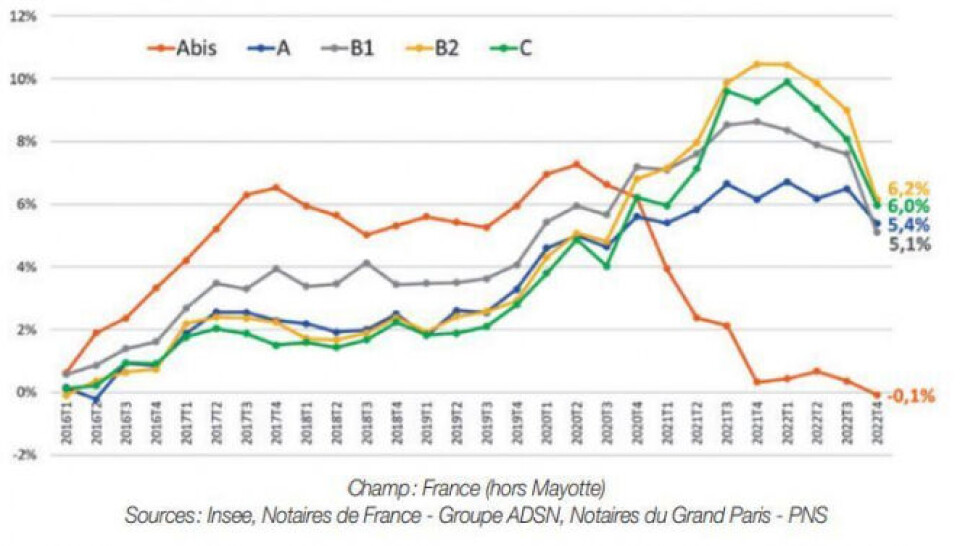-
Where in Paris is property becoming more affordable?
Seven arrondissements have now fallen below the €9,000 per square metre bracket
-
How quickly do homes near you go under offer in France?
68 days in Paris, 86 in Bordeaux: the average time is falling across much of the country
-
How long does it take to sell property in different areas of France? New study
Many major cities are showing signs of recovery when it comes to supply, demand, prices, and time to sell
Falling prices, fewer sales: what latest French notaire data shows
First-time buyers are hardest hit as market shows signs of downturn

The latest, most complete data on French house sales has been published.
It is compiled using information from French notaires, who are involved in all property sales in France.
Earlier this week, we reported what the data told us about the change in house prices.
Aside from house prices, the data also gives insights and predictions, using preliminary data up until April 2023.
Here we look at what this tells us about France’s housing market.
1. The number of French property sales is set to continue falling
The exceptional rise in property sales during Covid-19 has ended, and the number of sales is beginning to fall.
The number of non-new build houses sold between February 2022 and February 2023 was 1,083,000 – a drop of 8.1% compared with the previous 12 months.
Notaires predict from preliminary data for the second quarter of the year that year-on-year house sales will drop below one million and will be lower than at any time since the start of the Covid pandemic.
This fall bucks the pre-Covid general trend of rising sales and is an indication of a struggling market, according to notaires.
The drop in sales is in particular affected by the lower number of first-time buyers, which is covered further down in this article.
2. French house prices predicted to drop further
Alongside there being fewer homes on the market, the price of those that are being sold is also predicted to fall.
The general trend of rising house prices came to an abrupt end in the final quarter of 2022 (the last full available notaire data), with some cities seeing a double-digit fall in year-on-year house prices.
The trend is set to be seen nationally, and not just regionally in subsequent data, predict notaires.
Preliminary data for 2023 sees year-on-year house prices drop to as little as 1.3% nationally in May, compared to the 4.8% growth seen year-on-year from the final quarter of 2022.
Furthermore, between February 2023 and May 2023 a 0.9% drop is predicted from preliminary data across all of France, and coming after the general slowdown of house price rises in France, does not look set to be a one-off blip.
The notaires state that even though year-on-year house prices are still showing growths in the final trimester of 2022, it “masks the fact that prices have fallen since September 2022, for four consecutive months.”
They state it has been seven years since annual falls in flat prices in Paris, but that this is predicted for 2023 data.
3. High mortgage rates hit buyers hard
One reason for falling house prices is the lack of available buyers, in particular first-time buyers looking to enter the property market.
Mortgage rates shot up to 2.36% in February 2023 despite hovering just over 1% the year before – in April, the Bank of France said rates were 2.5%, and others reported them as being over 3%.
Alongside inflation rates, this is causing concern that fewer people will borrow, and the High Council for Financial Stability (HCSF) could change some of its borrowing rules to encourage property purchases.
Namely, rules that limit the maximum debt ratio to 35% and enforce a hard limit of 25 years on loans could be scrapped or widened, despite the Bank of France’s uneasiness over the matter.
The property market could find a “second wind”, say notaires, if first-time buyers on lower incomes – tempted by the falling house prices – have easier access to loans.
Notaires say this group has “all but disappeared” from the available pool of property purchasers, and currently, they are “locked out” of the market by restrictive mortgage conditions.
4. Paris first to see an overall fall in property price
Since 2013, the notaire data for non-new build properties has marked house price changes both on a city by city, but also zone by zone basis.
These zones split France into five scaling categories depending on the general desirability and price of properties in these areas.
Zone Abis is the highest level, and represents Paris and some communes in the neighbouring departments, whereas Zone C represents rural communes.
Despite having similar growth levels before Covid-19 – and seeing the largest price increases overall prior to 2020 – non-new properties in Zone Abis were the first to see a shrink in the average house price rise.
Whilst nationally strong growth was present during the pandemic, this area saw the price rise drop from around 6% to 2% year-on-year between Q3 of 2020 and Q3 of 2021.
Read also: How to know which French housing zone you live in and what it changes
Since the last quarter of 2021, year-on-year house price rises have hovered under 2% - and for the first time in the final quarter of 2022 (the most recent full set of notaire data), saw an overall house price fall.
Whilst the graph below shows the sudden drop in house price increases in all other zones for this quarter, it is significant that the first year-on-year drop has happened in the capital, even after the effects of the Covid-19 exodus have largely diminished.

5. New-build property market continues slide ‘into crisis’
The state of the new-build market in France has continued to deteriorate, with a number of real estate developers now concerned over the situation.
The increased cost of raw materials, lack of loans for first-time buyers, the lack of available land due to ecological laws passed by the government, and the lower attractiveness of the Pinel scheme (a tax reduction scheme for buy-to-let landlords) has caused the crisis.
Earlier this week it was reported that only around 20,000 reservations for new homes had been made, and the Fédération française du bâtiment (French Building Federation) says it is the worst year for new-build construction in sixteen years (in other words, since the 2008 financial crisis).
Between the last quarter of 2022 and the first quarter of 2023, the number of authorised individual new homes fell by just over 2%.
The number of houses put up for sale decreased by 6.1% year-on-year in the final quarter of 2022, and the outstanding new housing stock fell by 10%.
Read also: French property updates: Point system to limit second homes, form tips
Related articles
Do second home owners in France need a French bank account?
Can we decorate our French balcony with plant pots?
























